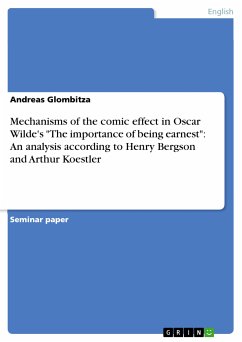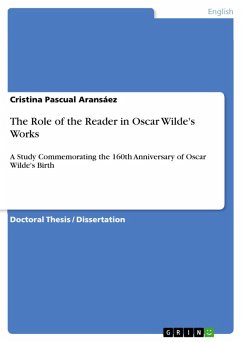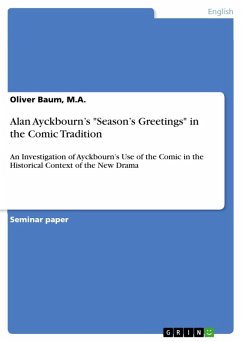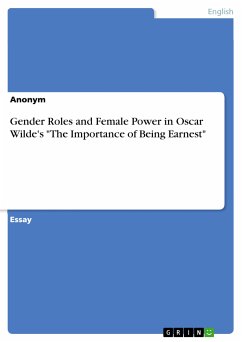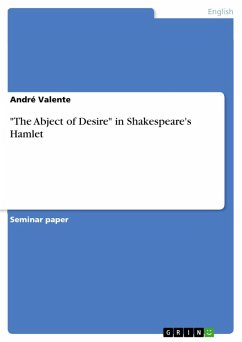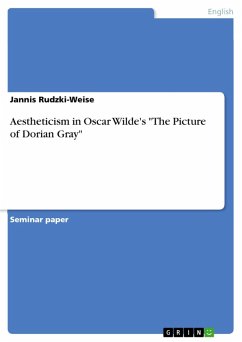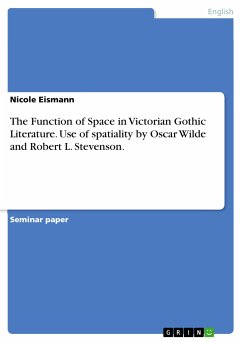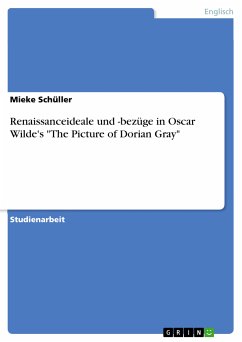Seminar paper from the year 2003 in the subject English Language and Literature Studies - Literature, grade: 1 (A), University of Tubingen (New Philology), course: Introduction to Literary Studies: Drama, language: English, abstract: Oscar Wilde's "The Importance of Being Earnest" was on stage for the first time in 1895. Since then, it seems to have lost nothing of its wit. People still consider it funny, when Algernon and Jack, both alias Ernest, bend the truth to jazz up their lives, ending up with seri-ous problems. But what is it actually that made, that still makes Wilde's play funny? What is the connection between a certain reply from Algernon or Lady Bracknell and the audience or reader trem-bling with laughter (or at least smiling)? This paper will be concerned with the question whether it is possible to trace all of Wilde's comical devices, perhaps even all possible forms of humour, back to one basic "recipe of laughter". People tried to do this, although the matter seems to be extremely complicated. Who has not yet experienced the embarrassment, while trying to explain a pun or joke to somebody who did not get it on the first time: the comical element slips through your fingers like water and soon seems to have never existed, although it has caused audible and visible effect, namely laughter, a moment before. We will start from what the philosopher Henry Bergson found out about mechanisms of the comic effect and see if his theory accounts for Wilde's play being comical. Later I want to outline the theory of bisociation, which Arthur Koestler brought up, and finally analyze the play along the lines of the theoretical apparatus he developed. Throughout the second chapter I will show that both theories will break down if confronted with certain forms of the comic element.
Dieser Download kann aus rechtlichen Gründen nur mit Rechnungsadresse in A, B, BG, CY, CZ, D, DK, EW, E, FIN, F, GR, HR, H, IRL, I, LT, L, LR, M, NL, PL, P, R, S, SLO, SK ausgeliefert werden.

